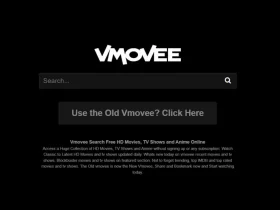
In today’s world, NAS and cloud storage serves the same purpose: they allow users to access data from any location and device. However, the two significantly differ in security, maintenance, and data backup.
Table of Contents
What Is The Difference Between Nas And Cloud Storage?
For the average user, when it comes to cloud storage services, only a few tools come to mind: Google Drive, Dropbox, OneDrive, and others, while a NAS is simply networked storage consisting of one or more hard drives. However, both are considerably more than just file storage.
“Cloud” refers to a service that runs on a remote server provided by a “cloud” provider and can be accessed from anywhere using the Internet. We use it intentionally or unintentionally on smartphones, desktop computers, and other devices. For example, creating a Google Doc that can be accessed from anywhere in the world and streaming music online via Youtube are all done in the cloud. Thus, the cloud is more than just a file storage service.
But then, why do you need a NAS? It is needed because of access to physical equipment and a wide range of capabilities. NAS is network-attached storage or a server connected to a network. It is a small but complete computer system that typically runs a Linux-based operating system. Previously, a NAS was just a box designed to store data on physical disks and access them locally. But over time, everything has changed.
Now it can be used not only for storing personal files but also as a regular desktop computer via HDMI port, video streaming, web server, media server, and more. All this is possible thanks to various applications offered by NAS box manufacturers. In addition, you can create a RAID array on your hard drive to protect your data in case any connected drives fail.
Like personal cloud platforms, there are NAS software free solutions that can turn an old computer into a massive NAS platform.
NAS vs. Cloud
Location
NAS is “network attached storage” connected to your home network and located directly at home. Cloud storage is just rented space on someone else’s server. To simplify to the limit, then, in this case, you save your data on another computer. Simply put, NAS boxes are usually placed in homes or offices for direct access to data via a local network, while the cloud is always on the Internet.
A modern NAS has a “cloud” option that allows the user to access the data stored on it over the Internet. Still, its performance and capacity cannot compete with cloud services that use potent servers and data centers.
Access
You have direct access to your NAS hardware, which can be a plus and a minus. The good thing is that you know exactly where the data is stored – in your home. On the other hand, you are responsible for maintenance and security, particularly software updates and any possible breakdowns. Of course, the risk of data loss can be mitigated with the help of duplicate drives, but the cost is on you if the NAS hard drive fails.
Data safety
You have physical access to disks and other hardware components in a NAS environment. This has its pros and cons. The positive side is that the device with personal information is with you. And the disadvantage is that if the hard drives fail or get damaged, this will lead to a complete loss of data.
This will not happen in the cloud. The provider will have multiple data backups, so you can’t lose it. The only thing recommended is to use a strong password and 2FA. Everything else is the responsibility of your service provider. Even failed hard drives will not be a problem for you since the cloud provider must have several data backups. You will probably not notice that your hosting provider has had any problems. And yet you are not entirely protected from data loss: most cloud service providers cannot guarantee that information will be recovered.
Connection speed
Using a NAS makes sense if you want to store your data on your home network so that you can access the same files from multiple devices. The connection and transmission speed depends only on the home network’s speed. Many manufacturers of NAS solutions also provide the ability to access files over the Internet. The speed in this case is determined by the characteristics of the home Internet.
Resource consumption
In the cloud, data is stored outside the home network but is usually stored in parallel on the hard drive of your home computer and synchronized in the process of changes. However, this results in higher resource consumption. In particular, this means that in the cloud, there is only a backup copy of the data, which, whatever one may say, takes up space on the hard drive of the home machine. The advantages of the cloud usually include access to files via the Internet, which is also associated with high resource consumption.
Memory boost
If you suddenly need more storage than your home NAS system provides, you can buy a larger hard drive. Even if it costs more than buying more cloud storage, you need to make a one-time investment and use it for free. But such an expansion has limits due to the limited number of allocated slots.
In the cloud, you won’t be required to pay any costs other than financial ones – everything happens automatically, and you don’t need to go to the store. Cloud storage is owned by a company, meaning it must be rented and paid for monthly space.
So What To Choose
The key difference between NAS and the cloud is this: A NAS is a physical storage with hard or flash drives connected to your network. The data is stored at your home; therefore, the risk of it falling into the wrong hands is lower. However, cloud storage providers store data on servers whose exact location is unknown. In addition, usually, this data is distributed among different servers.
Buying a NAS system is often a one-time expense while storing data in the cloud is customary to introduce a monthly fee. Therefore, the question arises: which is cheaper? The lifetime of a NAS system is difficult to predict but is typically estimated at 3-5 years. So, calculate the cost of the same capacity in the cloud for about three years and compare it with the cost of a NAS. Buying a NAS is usually more profitable for storing large amounts of data.
The right choice of storage solution is also based on the purpose of using one or another solution: if you have a large amount of data and want to access it from several devices on the same network, then it is better to purchase a NAS. Also, it is better to use this storage method to stream movies on your home network. However, cloud storage has the advantage that you can access and share your files from anywhere at the same speed, not limited to your home network.
If the security of your data is important to you, then both options are more or less reliable. When purchasing a NAS, you should consider purchasing a device with at least two hard drives that can be mirrored.











Leave a Reply